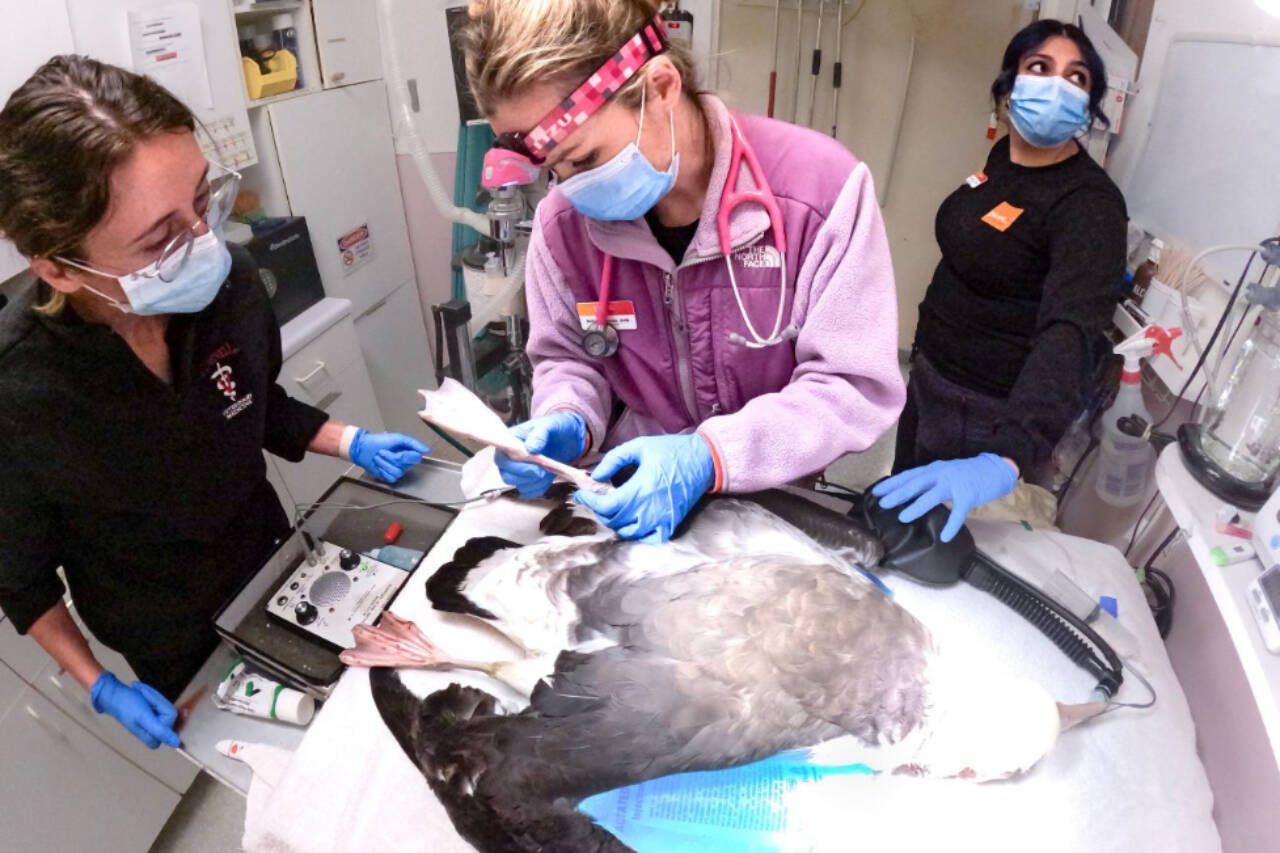By The Herald Editorial Board
Unless we have a dog or cat or other companion animal at home — and many of us do — we might underestimate how often we rely on the work of veterinarians and how their services are often in short supply.
A nationwide shortage of veterinary care, also seen in Washington state — in urban, suburban and rural communities — continues. Pet owners may have noticed difficulty in arranging for vaccinations and other regular care or finding a vet in an emergency. The demand in rural agricultural areas of the state is even higher.
And the need is not just care for dogs, cats and the like, says Ken Gordon, chief executive of the Washington State Veterinary Medical Association. And while small animal vets account for about 70 percent of the association’s members in the state, Gordon said, vets are involved in all aspects of our lives.
“Every ounce of animal protein that we purchase has a vet involved somewhere in the production of that animal to make sure that our food is safe,” he said. The same goes for the medications we take that are tested in clinical trials using animals to assure the animals’ and humans’ health and safety. There are wildlife vets that deliver care to endangered animals. There are vets working with honeybees, vital to the production of agricultural crops throughout the state.
And, with the outbreak of H5N1 avian influenza, vets now are working to hold back the spread of bird flu from wild birds to poultry and dairy cattle, and watching carefully and working with public health officials for cases of transmission to humans.
“My members care deeply about animals and also about the humans. They want to raise standards to improve veterinary care,” Gordon said.
Part of that shortage of veterinarians comes with the state’s population growth. The state has added 1.7 million people — and their pets, especially during the covid pandemic — during the last 20 years, yet during that same period the state’s college of veterinary medicine at Washington State University has not increased its annual class size for in-state students, said Dr. Eddie Haigh, a veterinarian in Shelton during a conversation this week with the editorial board.
To address the shortage, vets and the association are making a budget request to state lawmakers this session to increase the in-state tuition slots at WSU’s College of Veterinary Medicine, to allow the addition of 20 more state students each year at the school in Pullman.
Currently, of about 130 students entering the four-year program each year — following an undergraduate degree — about 50 to 55 of those are in-state students, whose state residency provides a subsidy, substantially reducing tuition costs for those students, Haigh said. A plan to increase in-state slots by 20 students is estimated to require about $1.25 million annually from the state.
That’s an investment that can pay off directly, Haigh added, because most students from communities within the state are more likely to remain in the state and even return to their hometowns once completing studies in Pullman.
Born and raised in Shelton, Haigh came back to the Olympic Peninsula community to work as a vet.
“I’ve been serving this community, which is an under-served rural community, for 14 years now, because that’s what I knew, that’s what I was comfortable with,” he said.
Mike Bellinghausen, a veterinarian for 40 years with practices in Kenmore and in Oregon, said the growing shortage of vets has caught up with his work in both states.
“It would take a year to find a veterinarian to fill a position,” he said. “We’ve been under supply for a long, long time. If you got a pet and you have to get into an emergency hospital, chances are you’re not going to get into one nearby.”
The vets, who are repeating a request they made last year, recognize that the state’s finances are tight right now, as lawmakers look to bridge a projected $12 billion to $15 billion budget gap over the next four years. But they see the increase in in-state student openings as an investment not just in animal welfare but also important in protecting public health in food safety and production and disease prevention.
“When you talk about some of the emerging diseases that we’re dealing with, including the highly pathogenic avian influenza, veterinarians are going to be on the forefront of new emerging diseases, ” Haigh said. “They’re going to be the first person that see it. They’re going to be the first person to diagnose those problems, and probably, the first person to find solutions for those problems.”
Yet another unanticipated disaster has added to demand for veterinary care. In the wake of the devastating wildfires in the Los Angeles area, pets have been flown to Washington state, to make more space at L.A. shelters for lost and displaced animals, all requiring care. About 40 dogs and 18 cats arrived in Seattle on Sunday.
Washington state, Haigh said, has had a history of responding to such needs elsewhere in the country.
“Even though our resources have been extremely limited, over the last 20 years with veterinarians, we’ve continued to answer that call when it’s been necessary,” he said.
Lawmakers will see no shortage of needs to be met as they assemble a budget in coming months. Even as cuts are made elsewhere, allowances have to be made for investments that meet needs but also address unanticipated costs. Increasing opportunities for Washington state students to train and add to the ranks of veterinarians here will serve the health and well-being of animals and people.
“It’s a small investment with a big return to our state,” Bellinghausen said.
Talk to us
> Give us your news tips.
> Send us a letter to the editor.
> More Herald contact information.

























